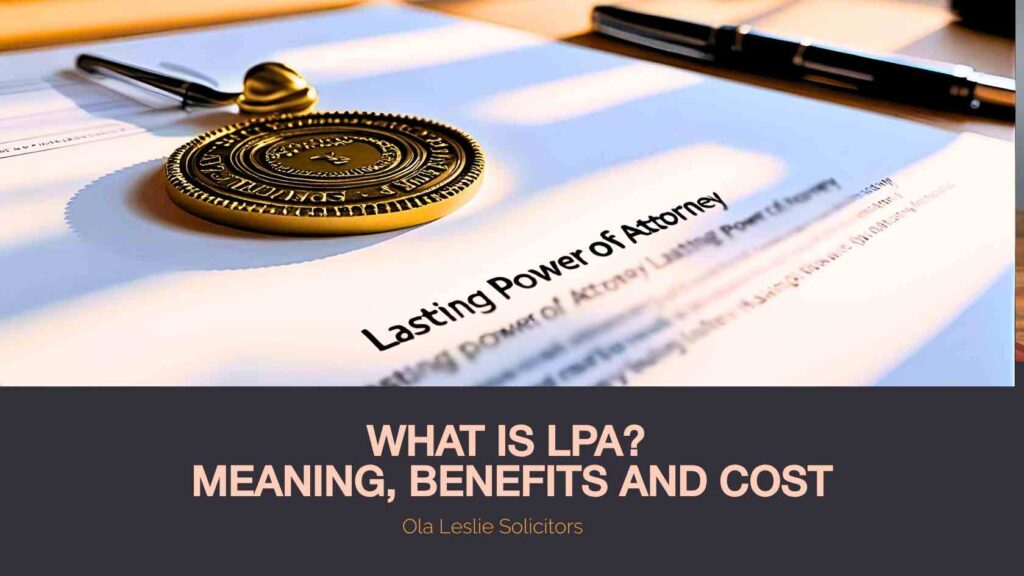Lasting Power of Attorney

A Lasting Power of Attorney (LPA) is one of the most important legal documents anyone in the UK can put in place to protect their future. It allows you to appoint someone you trust to make key decisions about your property, finances, health, and personal welfare in case you lose the mental capacity to do so yourself. Whether due to illness, accident, or age-related conditions like dementia, an LPA gives you peace of mind that your affairs will be handled according to your wishes.
In this complete guide, you will learn:
Prefer to act now? Start your LPA with Ola Leslie Solicitors
A Lasting Power of Attorney is a legal document that allows you (the donor) to appoint one or more trusted people (called attorneys) to make decisions on your behalf if you lose mental capacity in the future. It is a proactive, protective step to ensure that your preferences are respected, even when you can’t make or express those decisions yourself.
There are two main types of LPA in the UK:
This allows your attorney(s) to:
LPA can be used even while you still have capacity, if you allow it.
Read more: LPA Preparation Checklist: What to Consider Before Your Appointment
This allows your attorney(s) to:
Only takes effect once you lose mental capacity.
See how others have used this: Case Studies: How LPAs Have Helped Real Clients
Creating an LPA ensures that:
Discover: Do I Need a Lasting Power of Attorney? What You Should Know Before Instructing a Solicitor
Creating an LPA involves a registration fee and possibly a professional fee (if using a solicitor):
Cost Element | Amount |
Office of the Public Guardian (OPG) fee | £82 per LPA (as of 2025) |
Reduced Fee / Exemption | Available for low-income or benefits |
Solicitor Fees (Optional) | £150–£500+ per LPA |
Read: Frequently Asked Questions About Lasting Powers of Attorney (LPAs)
From adult children managing a parent’s dementia care to spouses handling property transactions during illness, LPAs have protected thousands of families.
Read our real stories: Case Studies: How LPAs Have Helped Real Clients
We have answered all your top questions here:
Frequently Asked Questions About Lasting Powers of Attorney (LPAs)
If you value control, clarity, and peace of mind, creating a Lasting Power of Attorney is a vital step. It’s never too early to plan for the future, but it can be too late.
An LPA protects your financial affairs, secures your healthcare decisions, and relieves loved ones of uncertainty during difficult times. By putting the right legal framework in place, you ensure that your wishes are respected and your best interests upheld, even if you’re unable to speak for yourself.
Take Action Now: Start Your LPA with Ola Leslie Solicitors
Don’t leave your future to chance. Let our experienced team help you create a legally sound and tailored LPA that gives you full control and peace of mind.
141-142 Lower Marsh,
London SE1 7AE
Recent Posts



“Ola Leslie Solicitors LLP is a limited liability partnership. Registered in England and Wales. Registered no: OC374424.
Regulated by the SRA and registered under SRA ID: 612672”
Copyright 2024 Olaleslie | All Rights Reserved